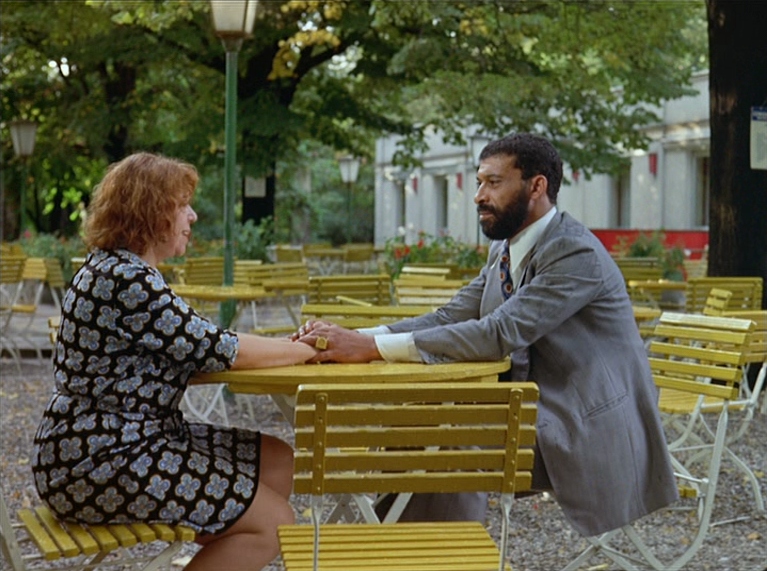Ali: Fear Eats the Soul (1974)
bfi, never be hopeful when watching a Fassbinder film

- love cannot exist without interference of social context and prejudices: the disruption is pervasive.
- they love each other, find comfort in each other because they are both marginalised and shunned by society: Ali is Morrocan ‘German is master, Arab is dog’, Emmi is an old widow who ‘isn’t fully German’ - she’s referred to by her husband’s Polish surname.
- shots alternate: in focus-out of focus. Ali and Emmi in focus: they are happy and in love. whenever they are with other people, they are unhappy as they mold to the social setting (Emmi with other ladies in the flat, she shows off and objectifies Ali. Ali with his colleagues, making fun of Emmi). Emmi even adopts the social attitudes of those around her - no, rather she is part of it - she holds prejudices against foreigners just like the Germans (she ignores the Yugoslavian girl).
- Fassbinder’s portrays humans as despicable and cruel. I was moved by the love between Emmi and Ali, but after they get married and we see Emmi’s prejudices (a result of her surroundings), we come to despise her too because we realise she is no different from other people and perpetuates the racism inherent in society. Fassbinder makes it hard to forgive Emmi even though he makes it explicit that the way she comes to treat Ali is due to social prejudices embedded in her environment (not that he wants us to forgive her).
- Fassbinder’s point is that the way society is structured and its inherent racism and prejudices gets in the way of love. Emmi and Ali’s love does not and cannot exist in a vacuum, and their love is inevitably corrupted by the society they live in.
- Yearning for home: Ali never feels accepted, Emmi soon shows that she is, after all, German. He yearns for couscous and he goes to have it at the buxom blonde’s place. They have sex, in the dark - where it’s permitted for them to do so. The way the scene is shot evokes sad isolation.
- Many scenes where the surroundings (walls, buildings, architecture) closes in on Emmi and Ali, when they are together and when they are alone. The environment is hostile to them: it isolates them, alienates them, traps them, suffocates them.
- The stairway of Emmi’s place: a cage, a maze, confinement, entrapment by surroundings, filled with whispers that reflect social prejudices and disapproval. It threatens their relationship and love.
- Discrimination and prejudice is halted when people realise that they can benefit from the victims: shop nearby with Emmi, the neighbours who Ali helps.
[side note: the audience at the screening were horrible - what the audience laughs at or does not laugh at says a lot]